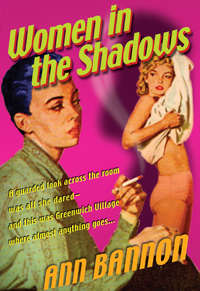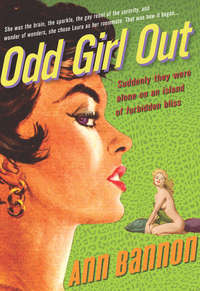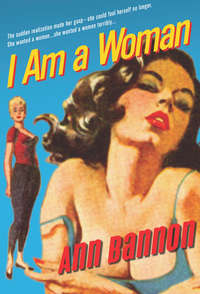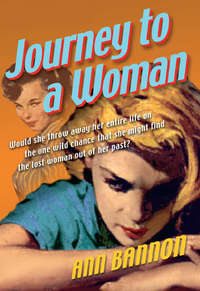
Полная версия
Beebo Brinker
“I do want you along,” she said. “I like your company.”
“More than the girls’?” he grinned.
She felt herself tense all over. There had been so many chances lately to talk to him, and she had run away from them all. Now, she felt a surge of defiance, a will to have it out. He had a right to know at least as much about her as she knew about herself. He had earned it through his generosity and affection.
“I read a book once,” she said clumsily. “Under my covers at night—when I was fifteen. It was about two girls who loved each other. One of them committed suicide. It hit me so hard I wanted to die, too. That’s about as close as I’ve come to reality in my life, Jack. Until now.”
He leaned over and switched off the television. The room was so quiet they could hear themselves breathing.
“I was kicked out of school,” she went on hesitantly, “because I looked so much like a boy, they thought I must be acting like one. Chasing girls. Molesting them. Everything I ever did to a girl, or wanted to do or dreamed of doing, happened in my imagination. The trouble was, everybody else in Juniper Hill had an imagination, too. And they had me doing all these things for real.” She shut her eyes and tried to force her heart to slow down, just by thinking about it.
“And you never did?” he said. “You never tried? There must have been girls, Beebo—”
“There were, but all I had to do was talk to one and her name was mud. I wouldn’t do that to anybody I cared for.”
Jack stared at her, wondering what geyser of emotion must be waiting to erupt from someone so intense, so yearning, and so rigidly denied all her life.
“My father tried to teach me not to hate myself because I looked like hell in gingham frills,” she said. “But when you see people turn away and laugh behind their hands … It makes you wonder what you really are.” She looked at him anxiously, and then she said it. “I’ve never touched a girl I liked. Never made a pass or spoken a word of love to a single living girl. Does that make me normal, Jack? … And yet I know I could, and I think now I will, and God knows I want to desperately. Does that make me gay?” She spoke rapidly, stopping abruptly as if her voice had gone dead in her throat at the word “gay.”
“Well, first,” he said kindly, “you’re Beebo Brinker, human being. If you are gay, that’s second. Some girls like you are gay, some aren’t. Your body is boyish, but there’s nothing wrong with it.” His voice was reassuring.
“Nothing, except there’s a boy inside it,” she said. “And he has to live without all the masculine trimmings other boys take for granted. Jack, long before I knew anything about sex, I knew I wanted to be tall and strong and wear pants and ride horses and have a career … and never marry a man or learn to cook or raise babies. Never.”
“That’s still no proof you’re gay,” he said, going slowly, letting her convince herself.
“I’m not even built like a girl. Girls are knock-elbowed and big-hipped. They can’t throw or run or—look at my arm, Jack. I was the best pitcher on the team whenever they let me play.” She rolled her sleeve back and showed him a well-muscled arm, browned and veined and straight as a boy’s.
“I see,” he murmured.
“It was the parents who gave me the worst of it,” she said. “The kids weren’t too bad till I got to high school. But you know what happens then. You get hairy and you get pimples and you have to start using a deodorant.”
Jack laughed silently behind his cigarette.
“And the boys get big and hot and anxious, like a stallion servicing a mare.”
Jack swallowed, feeling himself move. “And the girls?”
“The girls,” she sighed, “get round and soft and snippy.”
“And instead of round and soft, you got hot and anxious?”
“All of a sudden, I was Poison Ivy Brinker,” she confirmed. “Nobody wanted whatever it was I had. My brother Jim said I wasn’t a boy and I wasn’t a girl, and I had damn well better be one or the other or he’d hound me out of school himself.”
“What did you do?”
“I tried to be like the rest. But not to please that horse’s ass.” Her farmer’s profanity tickled him. “I did it for Dad. He thought I was adjusting pretty well, and that was his consolation. I never told him how bad it was.”
“So now you want to find Mona Petry,” Jack said, after a small pause, “and ask her if you’re gay.”
“Not ask her. Just get to know her and see if it could happen. She makes me wonder so.… Jack, what makes a feminine girl like that gay? Why does she love other girls, when she’s just as womanly and perfumed as the girl who goes for men? I used to think that all homosexual girls were three-quarters boy.” She hung her head. “Like me, I guess. And that they were all doomed to love feminine girls who could never love them back. It seems like a miracle that a girl like Mona could love a—” she stopped, embarrassed.
“Could love a girl like you,” he finished for her. “Take it on faith, honey. She doesn’t have to look like a Ram tackle to know that her happiness lies with other women. The girls you see around town aren’t all boyish, are they?”
“They’re not all gay, either.”
He ground out his cigarette. “Tell me why they ran you out of Juniper Hill. The whole story. Was it really just a nasty rumor about you and the Jones girl?”
Beebo lay down, stretched out on the sofa, and answered without looking at him. “They’d been hoping for an excuse for years,” she said. “It was in April, last spring. I went to the livestock exhibition in Chicago with Dad and Jim. I was in the stalls with them most of the time, handling some of the steers from our county. Sweaty and gritty, and not thinking about much but the job. And then one night—I’ll never know why—I took it into my head to wear Jim’s good clothes.
“I knew it was dangerous, but suddenly it was also irresistible. Maybe I just wanted to get away with it. Maybe it was the feel of a man’s clothes on my back, or a simple case of jealousy. Anyway, I played sick at dinnertime, and stayed in the hotel till they left.
“Jack, it was as though I had a fever. The minute I was alone I put Jim’s things on. I slung Dad’s German camera over my shoulder and took his Farm Journal press pass. On the way over, I stopped for a real man’s haircut. The barber never said a word. Just took my money and stared.
“I looked older than Jim. I felt wonderful.” She stopped, her chin trembling. “A blonde usher showed me to the press section. She was small and pretty and she asked me if I was from the ‘working press.’ I said yes because it sounded important. She gave me a seat in the front row with a typewriter. It was screwed down to a stand. God, imagine!” She almost laughed.
“I really blitzed them,” she said, remembering the good part with a throb of regret. “Everybody else was writing on their machines to beat hell, but I didn’t even put a piece of paper in mine. After a while I took out the camera and made some pictures. The girl came back and said I could work in the arena if I wanted to, and I did. It was hotter than Hades but I wouldn’t have taken that tweed jacket off for a fortune.
“I guess I took pictures for almost three hours … just wandered around, kidding the girls on horseback and keeping clear of the Wisconsin people.” She hesitated and Jack said, “What happened then?”
“I got sick,” she whispered. “My stomach. I thought it was bad food. Or that damn heat. Awful stomach cramps. In half an hour I was so miserable I could hardly stand up and I was scared to death I might faint. If I’d had any sense I’d have gone back to my seat and rested. But not Beebo. I didn’t want to waste my moment of glory. It would go away—it had to.
“Well, I was right about one thing—I fainted, right there in the arena. The next I knew, I was strangling on smelling salts and trying to sit up on a cot in the Red Cross station. The doctor asked how I felt and I said it was indigestion. He wanted to have a look.
“I was terrified. I tried to laugh it off. I said I was tired, I said it was the heat, I said it was something I ate. But that bastard had to look. He thought it might be appendicitis. There was nothing I could do but cover my face and curse, and cry,” she said harshly. Jack handed her a newly lighted cigarette, and she took it, still talking.
“The doctor saw the tears, and that was the tip-off. He opened my shirt so fast the buttons flew. And when he saw my chest, he opened the pants without a word. Just big bug-eyes.” She gave Jack a look of sad disgust. “I had the curse,” she muttered. “First time.”
After a moment she went on, “I never meant to hurt anybody or cause a scene. But I hurt my father too much. He suffered over it. I had to wait till my hair grew out before I could go back to school, but I could have saved myself the bother. They let me know as soon as I got back I wasn’t wanted. Before Chicago, they thought I was just a queer kid. But afterwards, I was really queer. There’s a big difference.”
Jack listened, bound to her by the story with an empathy born of his own emotional aberration.
“The principal of the high school said he hoped he could count on me to understand his position. His
Конец ознакомительного фрагмента.
Текст предоставлен ООО «ЛитРес».
Прочитайте эту книгу целиком, купив полную легальную версию на ЛитРес.
Безопасно оплатить книгу можно банковской картой Visa, MasterCard, Maestro, со счета мобильного телефона, с платежного терминала, в салоне МТС или Связной, через PayPal, WebMoney, Яндекс.Деньги, QIWI Кошелек, бонусными картами или другим удобным Вам способом.





